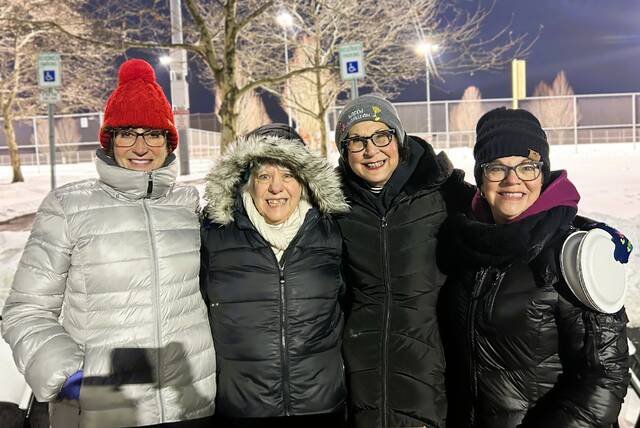A family whose Monroeville home was stormed by Pittsburgh SWAT officers in January is suing the city in federal court, claiming the violent raid violated their civil rights.
The family said in the lawsuit that at least 20 officers carrying machine guns raided their Paulson Avenue home Jan. 22, scaring the children, destroying many of their belongings and contaminating the house with tear gas.
The raid was based solely upon “unreliable cellphone location data” for DaRonte Anthony Brown, a shooting suspect who never had been in the Paulson Avenue home, said the family’s attorney, Maggie Coleman.
Police later arrested Brown and accused him of shooting a 16-year-old girl in a Monroeville motel Jan. 21. His jury trial is scheduled to begin July 19.
Kelly Angell and Derone Lewis, who are partners, and Angell’s five daughters, ages 7 to 24, are listed as plaintiffs in the lawsuit.
“Our primary contention is that the use of force was excessive and violated their Fourth Amendment rights,” which protects Americans from unreasonable government search and seizure, Coleman said.
“When you hear the phrase ‘militarization of police,’ this is what you’re talking about,” she added.
Pittsburgh police spokeswoman Cara Cruz said Wednesday afternoon that public safety officials do not comment on legal matters. Monroeville police Chief Kenneth D. “Doug” Cole was not available for comment.
“We were completely violated because these officers didn’t do their jobs,” Angell said Wednesday in a statement. “Even after they realized they were wrong, they never showed any compassion toward my children. They acted like it was no big deal.”
On Jan. 22, Angell, Lewis and Angell’s five daughters were inside the Paulson Avenue house, according to the lawsuit.
Monroeville police obtained a warrant to search the house because a cellphone used during the hotel shooting was tracked to that address, the lawsuit said. A neighbor reported seeing 15 to 20 officers in SWAT gear pull up on the street about 10:30 a.m.
Soon after, the SWAT team shot flash-bang grenades into the house, then stormed in from all directions, shouting Brown’s name, according to the lawsuit. They used battering rams to break the home’s exterior doors and shattered seven windows, all of which had been installed recently.
Officers smashed the family’s two TV sets, pulled the blinds from the windows and destroyed them, and damaged a chandelier and the family’s dining room chairs, according to the lawsuit. They left holes in the walls, and the house’s carpet was covered with broken glass, the lawsuit said.
SWAT officers removed Lewis from the house, handcuffed him, punched him repeatedly and pulled his hair back to look at his face, the lawsuit said. Officers also shot flash-bang grenades through the bedroom window of Angell’s severely autistic daughter, the lawsuit said.
The SWAT team also fired tear-gas grenades into the home, the lawsuit said.
The family was detained outside in near-freezing temperatures for more than three hours, according to the lawsuit. None of the family members was wearing coats or shoes. Angell and Lewis were in shorts.
Police never found Brown there.
After the family was let back into the house, Angell became irate, the lawsuit said. A Pittsburgh police sergeant at the scene told Angell the SWAT team shouldn’t have broken into the house, but it acted based on a cellphone ping “in the vicinity,” according to the suit.
Exposure to CS gas, commonly known as tear gas, incapacitates a subject by causing a burning sensation and tearing of the eyes, difficulty breathing and more, the lawsuit said. When used indoors, CS gas leaves a residue in carpets and furniture that is extremely difficult to clean, can continue to affect residents for months and might cause long-term respiratory damage.
The lawsuit is seeking unspecified damages.








